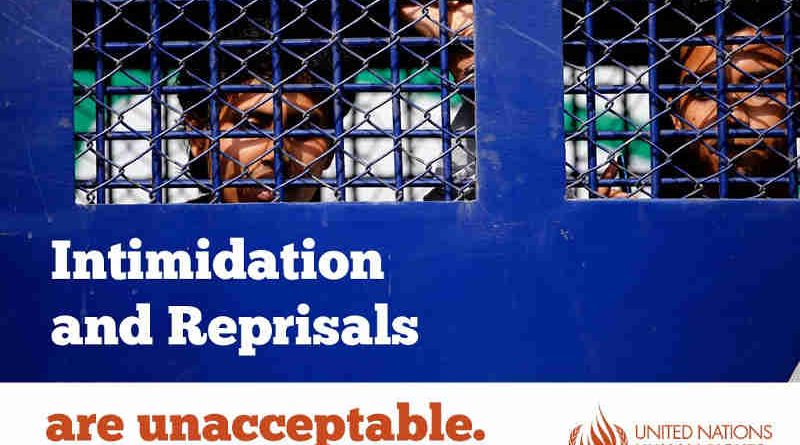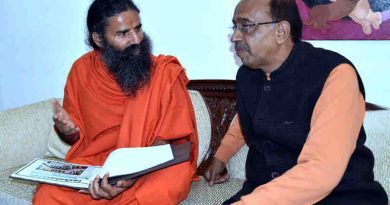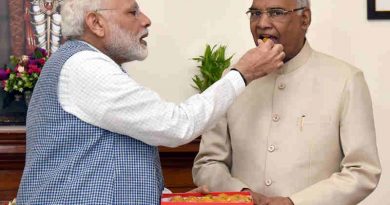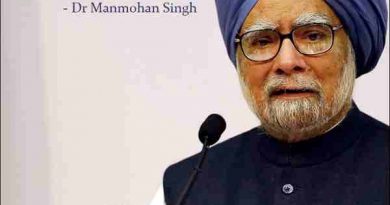UN Report Condemns Indian Government for Attacks on NGOs

The UN Human Rights organization has released a report that has criticized the Indian government for its attacks on human rights defenders and non-governmental organizations (NGOs).
The report reveals various cases of reprisal by the government as a revenge to NGOs’ cooperation with the UN Human Rights Committee. Civil society organizations human rights defenders, NGOs and civil society groups from nearly 40 States are named in the report.
“The horrendous impact on the victim and their families aside, reprisals against people for cooperating with the UN sends a chilling message to others of what will happen if they do the same thing. As they are designed to do,” Assistant-Secretary-General for Human Rights Andrew Gilmour said on Friday.
Echoing the UN Secretary-General’s conclusions in the report, Gilmour reaffirmed that “Any act of intimidation or reprisal for cooperation with the United Nations is unacceptable and runs contrary to the principles of the Organization, and much more can be done, by all of us.”
The report reveals that on 9 November 2017 two special procedures mandate holders expressed concern at the use of the Foreign Contribution Regulation Act (FCRA) of 2010 to restrict the work of NGOs who seek to cooperate with the United Nations, for example, by refusing to renew or grant licenses.
They drew attention to the revocation of the license of the Centre for Promotion of Social Concern (CPSC – also known as People’s Watch) under the Foreign Contribution Regulation Act, which was also addressed by three special procedures mandate holders on 31 May 2018.
On 29 October 2016 the Ministry of Home Affairs reportedly refused to renew the organization’s license to receive foreign funding under Article 6 of the FCRA and CPSC’s bank accounts were frozen.
Additionally, on 1 January 2018, it was reported that the Centre for Social Development (CSD), which promotes the land and resource rights of indigenous peoples in Manipur, received a six months suspension. According to reports, the suspension was based on claims that CSD violated the FCRA by using foreign funding for purposes other than intended by the law, including drawing attention to Uranium mining in Meghalaya at “several global platforms.”
It is alleged that CSD has been targeted by Indian authorities since August 2017, when surveillance of its premises and staff’s movements began. The offices of the organization were reportedly visited by the Central Reserve Policy Force and others to question the staff about their work, and staff have been harassed.
On 20 June 2017, Mr. Michel Forst, the Special Rapporteur on human rights defenders expressed his concern about reports of reprisals against a member of the Jammu and Kashmir Coalition of Civil Society, Mr. Kartik Murukutla.
According to the report, Mr. Murukutla represents victims of human rights violations before local courts and engages with United Nations human rights mechanisms, particularly the universal periodic review and the special procedures.
In September 2016, while traveling to Geneva, Mr. Murukutla was informed that he was subject to a “Look Out Circular,” a measure taken where a case has been registered against an individual by a police authority in order to verify whether a traveling person is wanted by the police.
They are used by the police authorities to prevent and monitor the entry or exit of persons who may be required by law enforcement agencies, and there is concern that this measure was taken against Mr. Murukutla as a reprisal for his cooperation with United Nations human rights mechanisms in Geneva.
On 7 June 2018 the Assistant Secretary-General for Human Rights addressed the allegations of intimidation and reprisals to the Government of India. On 2 July 2018 the Government responded that the Foreign Contribution Regulation Act of 2010 prohibits acceptance and utilization of foreign contribution for activities detrimental to national interest.
It noted that the revocation of the license for the Centre for Promotion of Social Concern before the Delhi High Court, is adjourned until 31 August 2018, and that the Centre for Social Development “needs to conform to the legal framework and the requirements under FCRA.”
“It’s good that most governments publicly condemn reprisals against human rights defenders. But it’s a pity many continue with this odious practice. We’re working with them to try to stamp it out.” – @GilmourUN at #HRC39 https://t.co/IVK1K5KST1 pic.twitter.com/vYwPIW2ixx
— UN Human Rights (@UNHumanRights) September 21, 2018
The Government noted that Mr. Khurram Parvez’s detention is well grounded according to the provisions of the Jammu and Kashmir Public Safety Act (1978) based on his activities prejudicial to public order. At the time of writing, according to the UN, the Government had not responded to the communications by special procedures of 9 November 2017 (OTH 2/2017), 20 June 2017 (IND 4/2017), or 31 May 2018 (IND 14/2018).
In the 2017 report of the Secretary-General, intimidation and reprisals against Mr. Khurram Parvez, Chairperson of the Asian Federation Against Involuntary Disappearances and Program Coordinator of the Central Jammu and Kashmir Coalition of Civil Society (JKCCS), were reported in relation to his cooperation with the Human Rights Council, the Working Group on Enforced and Involuntary Disappearances and the universal periodic review.
These reprisals took the form of a travel ban and arbitrary arrest and detention, reportedly because Mr. Parvez was fomenting an “anti-India narrative,” propagating separatism, and inciting others to violence.
Reprisals were apparently taken against him for documenting and sharing information with the United Nations on human rights violations in Jammu and Kashmir, including on behalf of victims. At the time of his preventive detention of 76 days in 2016, he was accused in four criminal cases, which were subsequently dropped by the Jammu and Kashmir High Court that held that he had been detained arbitrarily. However, the police have still filed “First Information Reports,” before a court in Srinagar for three cases, for which he is awaiting hearings.
According to the UN report, Mr. Parvez was a source of information collected from June 2016 to April 2018 for an OHCHR report published in June 2018 on the human rights situation in the State of Jammu and Kashmir and has reportedly suffered reprisals for his assistance.
Defaming content against the JKCCS and Mr. Parvez is reportedly being circulated by a group that claims to have ISIS affiliation. The group has publicly incited death threats against Mr. Parvez and his family, and used slanderous language against the work of the JKCCS, the report stated.
💛 Support Independent Journalism
If you find RMN News useful, please consider supporting us.




